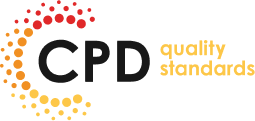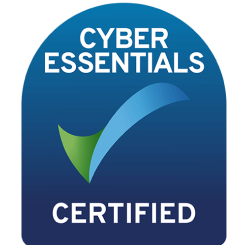Gradual career growth can provide access to increased resources, better benefits and a sense of achievement. Advancing in your career involves gradually climbing the ranks and achieving higher positions, which can result in increased responsibilities, higher salaries and opportunities to lead.
You can discover ways to propel your career forward by cultivating a growth mindset and consistently seeking new knowledge and skills. The personal satisfaction that comes with career advancement can also boost your motivation and productivity in the workplace. Here are tips to help you advance your career in 2024:
1. Set Specific And Time-Bound Professional Goals
It’s essential to identify the precise job position you aim to attain and establish short- and long-term professional goals that’ll guide you in attaining your ultimate goal. It’s critical to clearly understand the intermediate paths you must navigate to reach the peak of your career and the timelines associated with each stage.
Create a list of short-term goals and actionable steps to help you progress towards your long-term objective. For example, suppose your ultimate goal is to become a manager in your organisation. In that case, your short-term goals may include acquiring the necessary skills, gaining relevant work experience and obtaining relevant educational qualifications.
It’s beneficial to create career goals and document them. This approach provides a valuable structure for establishing personal and professional goals that are specific, measurable, achievable, relevant and time-bound. By utilising this method, you can clearly define your objectives, set a timeline for their attainment, and outline the steps you’ll take to achieve them. Regularly referencing your goals and tracking your progress can help you stay motivated and evaluate your advancement.
2. Be Intentional
Once you’ve established your career goals and identified the necessary activities to achieve them, it’s crucial to concentrate on realising them. Manage your time effectively and seek opportunities to expand your knowledge and skills, such as attending meetings and seminars. Collaborate with ambitious colleagues and acquaintances to exchange ideas and gain insight.
Additionally, you can offer innovative ideas and solutions to your employer that can enhance organisational revenue and solve problems. By contributing to the success of your organisation, you may earn a promotion to a higher position within the company.
3. Monitor And Track Your Career Progress
Establish a consistent monitoring and tracking system to determine whether you’re advancing in your career. Recognise your areas of proficiency and inadequacy and request assistance from colleagues who share your drive for success. Mutual accountability with your colleagues can foster encouragement and facilitate progress. Adhere to the strategies and milestones you’ve set for yourself and attain the crucial standards to advance your career.
Share your career aspirations with a reliable mentor or confidant and solicit feedback. Consider assembling a group of friends and supporting one another in monitoring and evaluating your career progress. Establish a routine of periodically examining and assessing your goals, objectives and accomplishments to identify the areas requiring modification.
4. Upskilling And Reskilling
The terms upskill and reskill mean obtaining new knowledge and abilities to advance one’s profession.
To upskill means to boost and refine your current skills and knowledge to match the evolving demands of the job market. This may entail learning novel technologies, software or techniques connected to one’s present field.
On the other hand, reskilling involves acquiring new abilities or knowledge to switch to a different industry or occupation. This frequently necessitates starting from the beginning or gaining a fundamental understanding of a new industry or skill set.
Upskilling and reskilling can help you advance your career in the following ways:
- Enhanced competitiveness: Investing in upskilling and reskilling can distinguish you from other job seekers in a highly competitive employment landscape. It also improves your likelihood of landing superior or higher-paying positions.
- Improved job security: By continually upgrading your abilities, you can reduce your vulnerability to job loss due to shifts in the labour market or automation.
- Career growth prospects: Upskilling and reskilling can unlock fresh avenues and possibilities for growth and advancement within your organisation.
- Increased earning capacity: Gaining new, sought-after abilities can enable you to negotiate higher pay and boost your earning potential.
- Elevated job contentment: Keeping your skills up-to-date can also increase your self-assurance and sense of fulfillment, resulting in greater job satisfaction.
Additionally, whatever your profession, you require a distinct skill set, including specific proficiencies, attributes and experiences that enable you to carry out tasks effectively. This can consist of position-specific skills or transferable skills functional across various professions. For instance, leadership and management are usually requirement for senior positions. If you lack the skills required for your desired job or position, you can continually cultivate them through training courses.
Both soft and hard skill sets are essential in advancing your career. Soft skills are transferable competencies applicable to any occupation or industry. These competencies typically correspond to personality traits that enhance your job performance. These skills include:
- Time management
- Interpersonal skills
- Creativity
- Problem-solving
- Decision-making
- Critical thinking
- Organisational skills
- Communication
- Leadership
In contrast, hard skills refer to your technical competencies that are often job- or industry-specific and are frequently required by employers. As they’re technical in nature, they can be learned and honed through training. Examples include:
- Data analysis
- Project management
- Event planning
- Proficiency in other languages
- Accounting programming
- Information technology
A blend of hard and soft skills makes you stand out during job applications. While employers usually prioritise candidates with the necessary technical skills, they also consider personality traits that complement their company culture and team dynamics.
Learn how to effectively list hard and soft skills on resume to stand out to potential employers. Get pro tips and examples in this comprehensive guide.
5. Connect And Build Your Network
Networking is one of the most feasible methods to boost your career, as it enables you to establish direct connections with individuals and corporations you may wish to collaborate with. With the emergence of technology and online media, networking has become more accessible as you can now keep in touch with like-minded professionals on platforms like LinkedIn.
Networking is a strategic tool that can boost your professional life. The size of your network determines your reach in your industry. By forging connections with people in your field, you gain access to exclusive information and opportunities that’d otherwise be hard to come by. Seek opportunities to connect with influential individuals online and engage in meaningful conversations.
A well-connected professional often has an advantage regarding job promotions, new job openings and learning from experienced peers. Positive relationships with colleagues, mentors and other professionals improve your reputation and increase your visibility and credibility in the industry. Moreover, the feedback you receive from your network can help you grow personally and professionally.
Networking can also pave the way for partnerships, collaborations and alliances, expanding your professional circle and opening up new career opportunities. By investing in building relationships, you can make significant progress in achieving your career goals. Therefore, networking is a valuable investment in your professional life.
6. Determine Your Motivation
Identify the things that help to motivate you in your everyday job. It can be a colleague, money, purchasing a new car, getting a promotion or even your family. Every person will have a different list of things that motivate them. Regarding career development, most employees seek new things that’ll help keep them going even after achieving a particular milestone.
Identify several factors that drive you, and attempt to narrow them down to a few key ones. By doing so, you’ll better understand your career development prospects.


![]() 13 minutes
13 minutes


































